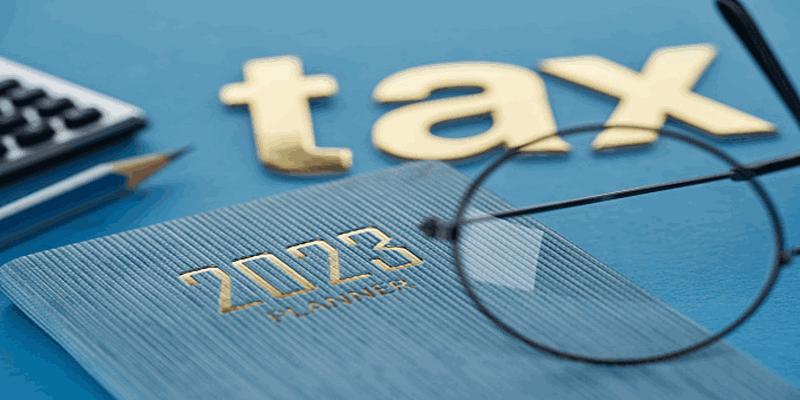The term "owner financing" refers to a type of mortgage in which the seller and buyer work out a payment plan directly with each other instead of going through a bank for a loan. Like a regular bank loan, the seller fronts the money for the transaction, and the customer pays them back over time.
It starts with a sizable down payment on the home and continues with regular loan payments plus interest. The cost of funding from an individual rather than a bank or credit union is typically higher. But, it might be a good choice for homebuyers who have difficulty being approved for a loan through a conventional lender.
How Owner Financing Works?
This is a high-level explanation of how owner financing functions in practice.
The Buyer and the Seller Come to Agreement About the Financing
When a buyer and seller work out the financing arrangements in a promissory note, everything from the interest rate to the amortization plan to the due date for the loan is part of the owner financing conditions.
The Buyer Makes a Down Payment
When the seller and the buyer settle on a financing plan, the buyer will make a down payment to seal the deal. This up-front cost is usually a more significant portion of the total price than what would be required by a conventional mortgage provider. Due to the monetary risk involved, the owner will naturally seek the highest level of protection possible.
The Loan Is Normally Repaid in Monthly Installments
Insurance and property taxes are included in a conventional mortgage but not if the owner is providing the financing.
The Buyer Settles the Debt
Typically, the last payment on a loan is a balloon payment or a lump amount paid by the buyer at the completion of the loan term.
Types of Owner Financing

A written contract is necessary to document an owner financing agreement. These are just some of the possible formats for an owner financing agreement.
Mortgage or Promissory Note
The buyer and lender both sign a mortgage deed stating that the lender has a lien on the buyer's property until the debt is repaid. The mortgage is recorded with the concerned bodies, and the buyer takes possession of the property.
Trust Deed
Mortgage deeds and this other sort of promissory note are very similar. If you have a deed of trust on your house, an independent trustee will hold the deed and the title to the property. When the buyer has fulfilled all the financing requirements, the title is transferred to them.
Contract for Deed
No deed or title transfer will occur until the loan has been paid in full. Seller maintains all rights, titles, and interests in the property until such time.
Lease-Purchase Contract
The prospective homeowner signs a lease-purchase agreement, often known as a rent-to-own contract, to rent the property for several months before committing to the purchase. If the renter ultimately decides to purchase the home, all rents paid during the lease period might be credited against the purchase price.
Pros and Cons of Owner Financing
Pros of Owner Financing
There are a number of possible benefits for both sellers and purchasers when owner financing is used instead of more conventional forms of finance.
Reduced Financing Restrictions for Consumers
In some cases, a buyer may not qualify for traditional finance but may be able to work with the owner to secure financing. Owner financing might be an option if you have trouble receiving a mortgage loan from a traditional lender because of factors like a low credit score or unpredictable income.
Less Time Is Needed for Doing the Necessary Research
Owner financing arrangements might shorten due diligence periods, including house appraisals and inspections. For instance, an appraisal isn't required if a buyer wants to get a mortgage through their bank. The buyer and the seller both will benefit from the shortened closing time.
There Is Zero Required Initial Investment
Unlike with an FHA loan, owner financing does not require borrowers to put down a minimum amount before closing on the property. This might put the buyer in a position to negotiate a lesser down payment from the seller if they are sympathetic.
There Is a Reduction in the Cost of Closure
Owner financing allows the seller and the buyer to reduce conventional closing expenses.
Increased Opportunities for Profit from Investments
The high-interest rate on an owner-financed loan might provide the seller with a steady stream of income for a lengthy period of time.
Cons of owner financing.
There are several potential dangers associated with owner financing, as neither the buyer nor the seller has the protection of a conventional mortgage loan.
A Higher Price for Purchasers
Buyers who choose owner financing often pay a larger share of the purchase price upfront and pay higher interest rates than those who obtain a conventional mortgage.
Costly Installments That Eventually Balloon into One Large Sum
At the end of the loan term, the buyer may be required to pay back a huge sum of money called the "balloon payment" if the owner financing agreement has such a provision.
There Is a Potential for a Significant Level of Risk for Sellers
By financing a property sale, the seller exposes themselves to the risk that the buyer may not pay. But, if the buyer cannot make their loan payments and the seller is forced to begin the foreclosure process, the seller is also responsible for the debt.
Problems with the Mortgage That Already Exist
If the seller has an existing mortgage on the property, this might make the process of repaying the loan more difficult. A foreclosure will negatively impact both the seller and the buyer if the buyer fails on their loan and the seller depends on the money from the sale to make their mortgage payments.
Conclusion
While seller financing is not widespread, it might benefit the buyer as well as the seller in certain situations. Nonetheless, the benefits and drawbacks of entering into a contract should be carefully considered from each party's perspective.
In most cases, it is advisable to have an estate lawyer analyze the document and represent your interests during talks if owner financing is something you're contemplating.



